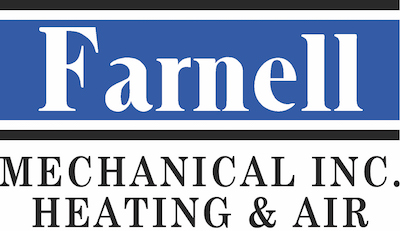Purchasing your first home is an exhilarating experience. You’re likely juggling numerous details to ensure you’re making the right choice. We believe that understanding your future HVAC system is essential. The property’s HVAC system represents a significant investment and potential source of long-term costs, illustrating why a detailed inspection should be a top priority for first-time homebuyers.
In the following guide, we’ll share seven tips for discovering all there is to know about a home’s heating and cooling setup. And if you want a more in-depth opinion from the experts, consider calling Farnell Mechanical, Inc.. Our seasoned technicians can weigh in on your options with industry insights that are second to none.
1. What Type of HVAC System Is It?
Start by identifying what specific HVAC system the home features. Furnaces tend to last longer than air conditioners, and relatively new types of HVAC equipment like heat pumps boast average life spans that are even longer. Getting the details on the make and specific model ensures you have a clear idea of how much maintenance it will require.
2. How Long Ago Was the System Installed?
Another good idea is to find out how old the HVAC system is when you’re looking at a potential new home. In general, HVAC systems last about 10-12 years. Learning its approximate installation date helps you anticipate future maintenance needs or when it might eventually stop working. Older systems are at a higher risk of problems, so fiscal planning for a replacement unit might be needed faster than expected.
3. Does the System Have a Warranty?
Check if the HVAC system is covered by a warranty. If it is, that’s great news because it can help with maintenance expenses. HVAC warranties should take care of parts and labor, but specifics will vary. Review any terms that seem confusing to ensure you understand your coverage and the likelihood of out-of-pocket costs.
4. Has the System Ever Been Professionally Serviced or Maintained?
Next, examine the maintenance history of the HVAC system, if that information is accessible. This kind of information can demonstrate if the repair needs are high or how much upkeep was provided. Inquire about key tasks such as changing the air filter, which is a positive sign indicating regularly scheduled tune-ups.
5. Are You Aware of the System’s Energy Efficiency Ratings?
Selecting a system with strong energy efficiency isn’t just smart; it leads to more manageable utility bills and less of an impact on the environment. Check out the seasonal energy efficiency ratio (SEER) ratings for air conditioning as well as the annual fuel utilization efficiency (AFUE) for furnaces. The higher the SEER rating, the more efficient the cooling over the whole season, while high AFUE ratings mean the fuel is efficiently converted into useable heat.
6. Did You See Any Problems After Completing an Informal Inspection?
Even if you don’t have the know-how of an HVAC technician, you can still take a moment to examine the HVAC system on your own. Look for any concerning items that weren’t mentioned by the seller or real estate agent. This can mean bizarre noises, spots with uneven heating or cooling and attempts at concealing any visible damage.
7. Have You Sought Out Expert Advice?
If you’re still hesitant to make an offer because of the condition of the HVAC system, it’s wise to get an assessment and recommendation from trained HVAC professionals. They will be much more likely to catch things you might not, such as leaking coolant, wiring issues or damaged ductwork.
A Chat with Farnell Mechanical, Inc. Simplifies Your Home-Buying Journey
Selecting your first home ought to be exciting, and Farnell Mechanical, Inc. will do everything possible to ensure that doesn’t change. Reach out with us at 334-524-2458. We can discuss how our HVAC services ease your mind, giving you what you need to dive into home-ownership with confidence.
